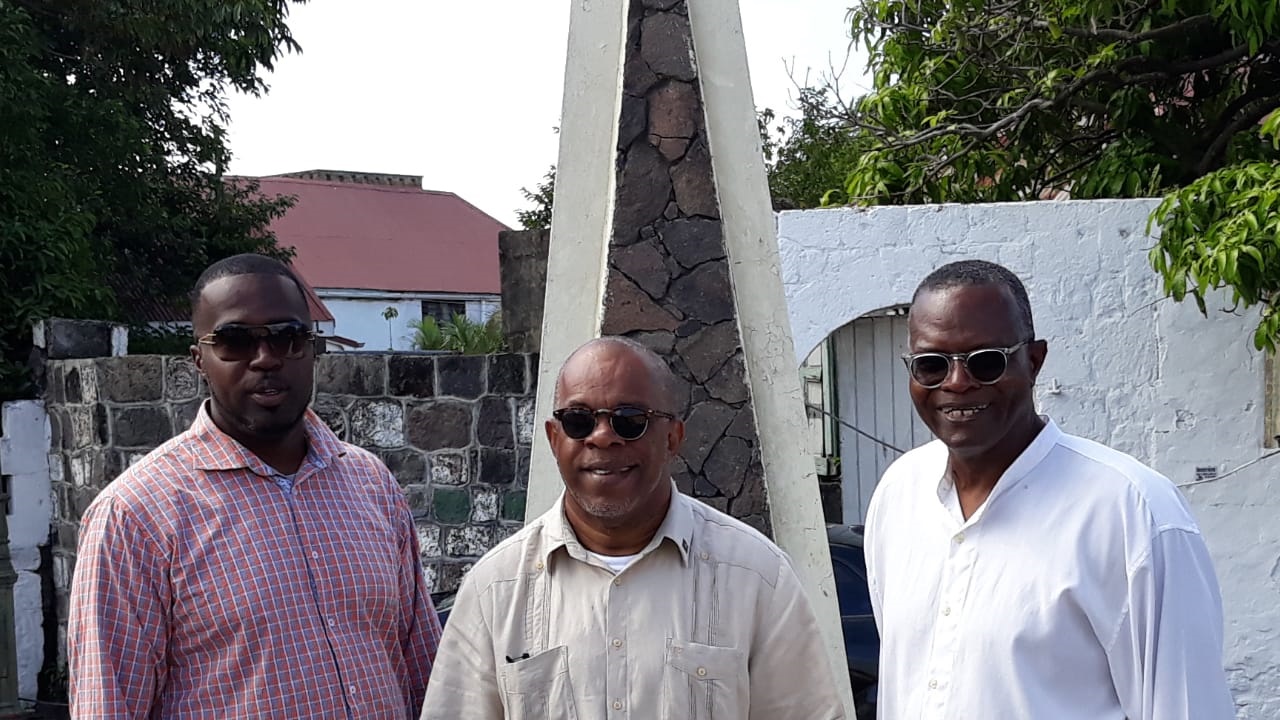Clyde van Putten c.s. presented 11-page document to the court to justify arguments

STATIA/ PHILIPSBURG—The judge in the Court of First Instance will hand out a decision in the hearing of the two cases presented by the people of St. Eustatius on December 11, 2018.
According to reports on the hearing that was held in St. Eustatius on Tuesday November 20, the case of the Dutch law superseding international law which led to “the removal of the democratically elected government” and the injunction with regard to the removal Dutch representatives that was placed in the government were heard by the judge. During the hearing Clyde van Putten of St. Eustatius presented an eleven page document to the court to justify his arguments on both cases.
Court Of First Instance To Rule On Statia Case Early In December
In the first case in the main proceedings the Netherlands represented by attorneys of HBN law firm, asked for a postponement of the hearing to further research their case and respond to the injunction which will be heard on December 11 upcoming. With regard to the summery proceedings both parties were given two rounds to present their case and will be heard also on December 11.
The arguments that were presented by the Netherlands was described as the same ones that were presented over the years since the dispute. Which was the same letters that were presented by the former Ministers of Kingdom Relations and the current Minister which basically states that the Dutch law is the Dutch law and as a result, St. Eustatius must adhere to it.
This being as it may, it is therefore prudent that the Netherlands has the authority to impose whatever law they feel like and also carry out and actions on St. Eustatius. However, the main focus of the hearing is that if international law supersedes the national law which is the main question that St. Eustatius has placed to the court.
This question was not answered by the Dutch legal representatives Mr. C.R. Rutte and Mr. J.W.H van Wijk. Clyde van Putten in his arguments questioned the right to a full measure of self-government but the attorneys representing the Netherlands did not respond.
Van Putten’s legal brief presented a background of what took place following the change of the constitution on October 10, 2010 where St. Eustatius was made “a special municipality of the Netherlands. This legal status was said to be a contravention of international law which stipulates that regardless of the affiliation with the countries it should result in a “full measure of self- government as stipulated in article 73 of the United Nations Charter,” van Putten argues.
He cited as examples many instances such as tax collection and setting its own budget without the approval of the CFT, which has been very frustrating for the government. He indicated that many of the decisions for St. Eustatius are taken in The Hague or those who were appointed by the Netherlands which is a violation of the right of full internal self-government.
###
Legal brief presented to the court by Clyde van Putten c.s.


























